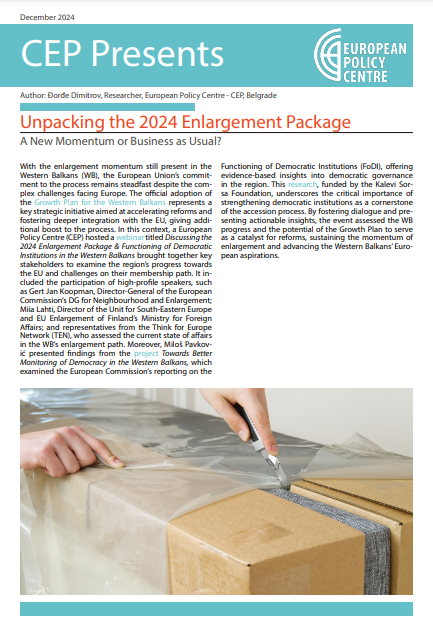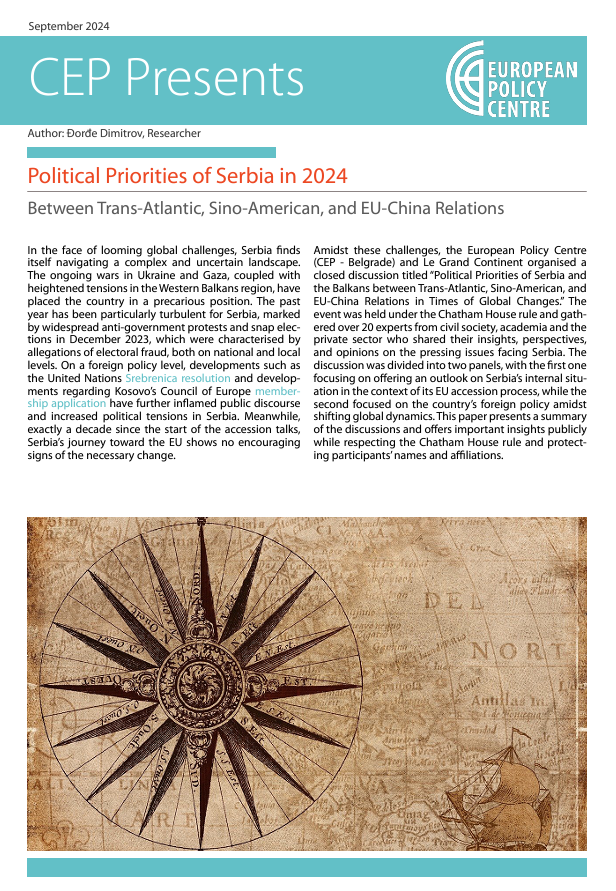Headquarters: Svetog Nauma 7, 11000
Office address: Đorđa Vajferta 13, 11000
Phone:: +381 11 4529 323
Serbia’s EU accession process is currently at a critical juncture. Since the collapse of the canopy of the Novi Sad train station, which led to the death of 16 people, citizens have engaged in country-wide anti-corruption protests. On a foreign policy level, Serbia continues to pursue its multi-vector foreign policy, balancing its historic ties with Russia while vowing its commitment to EU membership. Meanwhile, Serbia’s alignment with the EU acquis remains difficult, especially in environmental and energy policies. Amidst these challenges, the European Policy Centre (CEP – Belgrade) and its partners (Institute for the Danube Region and Central Europe – IDM, Association for International Affairs – AMO, Hungarian Institute of International Affairs – HIAA, Institute of Public Affairs – IVO, Ukrainian Institute for International Politics – UIIP) organised a roundtable titled “Serbia: Challenges of EU Enlargement”. The event gathered 18 experts from civil society, academia, and the non-profit sector who contributed their views and opinions on the challenges facing Serbia. The discussion was divided into three panels: 1) Serbia’s foreign policy, 2) Serbia’s domestic situation (state of democracy, role of civil society, and EU accession), and 3) Serbia’s energy transition and the controversial lithium mining projects. This paper provides a summary of the discussions and their important insights while adhering to the Chatham House rule and protecting participants’ names and affiliations.


